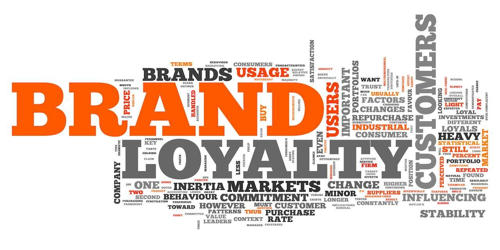Brand loyalty is the tendency of consumers to continuously purchase one brand’s products over another. It is a pattern of consumer behavior through which consumers tend to get committed to a specific brand or product and make repeat purchases over time. It is the positive feelings towards a brand and dedication to purchase the same product or service repeatedly, regardless of a competitor’s actions or changes in the environment. Businesses plan different creative marketing strategies like reward and loyalty programs, incentives, trials, and brand ambassadors to create brand loyalty.
In terms of definition, brand loyalty is the emotionally-charged decision of a consumer for purchasing a particular brand again and again. Consumer behavior patterns demonstrate that consumers will continue to buy products from a company that has fostered a trusting relationship. It can also be demonstrated with other behaviors such as positive word-of-mouth advocacy. Loyalty is extremely beneficial to businesses as it leads to repeat purchases by consumers, higher revenues, and customer referrals. Coca-Cola Company is an example of an iconic brand that has resulted in customers demonstrating brand loyalty over the years despite Pepsi’s products and marketing efforts.
Corporate Brand loyalty is where an individual buys products from the same manufacturer repeatedly and without wavering rather than from other suppliers. Companies with strong brand loyalty will see their customers repeatedly buy its products or services, regardless of changes in price or convenience. Loyalty implies dedication and should not be confused with habit with its less than emotional engagement and commitment. Loyal customers are the ones who will purchase the same brand regardless of convenience or price. These loyal customers have found a product that meets their needs, and they’re not interested in experimenting with another brand. Satisfaction with a business will drive them to spread brand awareness and refer new customers, effectively providing a company with costless advertising. Businesses whose financial and ethical values, for example, ESG responsibilities, rest in large part on their brand loyalty are said to use the loyalty business model.
A great method for nurturing brand loyalty is having a rewards program. Brand loyalty is important for several reasons. First, it reduces the cost of production because the sales volume is higher. Second, companies with brand-loyal customers don’t have to spend as much money on marketing the product, which will permit the company to either retain more earnings or to invest resources elsewhere. Third, companies may use premium pricing that will increase profit margins. Many companies entice customers to make a purchase by offering points or a similar object to be redeemed for prizes and awards. Brand loyalty helps in building a strong customer base which in turn serves as a tool to surpass competitors and attain a competitive edge that is required to succeed in the marketplace.
















